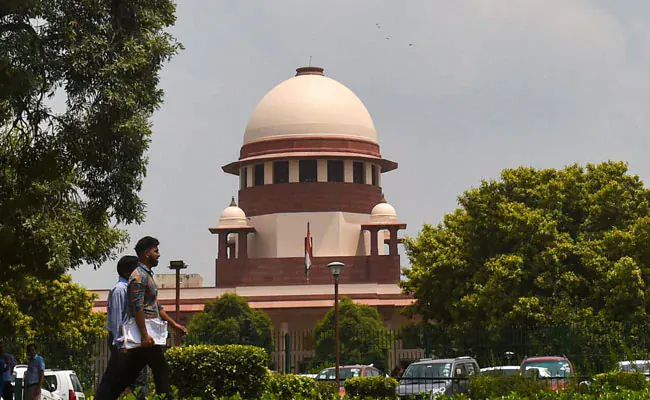When Politicians Stop Using Religion, Hate Speech Will End: Supreme Court
New Delhi:
The Supreme Court on Wednesday took serious exception to hate speeches saying these will end the moment politics and religions are separated and politicians stop using religion in politics.
Terming hate speeches a “vicious circle”, the top court said these utterings are being made by fringe elements and people should restrain themselves from doing so.
A bench of justices KM Joseph and BV Nagarathna referred to speeches of former Prime Ministers Jawaharlal Nehru and Atal Bihari Vajpayee, saying people from remote areas and every nook and corner used to gather to hear them.
“Major problem arises when politicians are mixing politics with religion. The moment politics and religion are segregated, this will end. When politicians stop using religion, all this will stop. We have said in our recent verdict also that mixing politics with religion is dangerous for democracy,” Justice Joseph said.
Wondering as to how many people can courts initiate contempt action, the bench said why cannot the people of India take a pledge to not vilify other citizens or communities.
“Everyday fringe elements are making speeches to vilify others including on TV and public forums,” the bench said while hearing a contempt petition against various state authorities including Maharashtra for failing to register FIRs against those making such speeches.
When Solicitor General Tushar Mehta pointed out a derogatory speech made in Kerala by a man against a particular community and questioned that petitioner Shaheen Abdullah has selectively pointed out the incidents of hate speeches in the country, this triggered sharp exchanges between the court and Mehta.
He also pointed out a statement made by a DMK party leader and said why has the petitioner’s counsel not made him and those states party in the contempt petition.
The bench referred to those speeches and said “every action has equal reaction” and emphasised, “We are following the Constitution and orders in every case are bricks in the structure of rule of law.
We are hearing the contempt petition because states are not taking action in time. This is because the state has become impotent, powerless and does not act in time. Why should we have a state at all if it is silent?”
Mehta then said, “Can’t say that about any state but Centre is not. Centre has banned PFI. Please issue notice to state of Kerala so that they can respond to this.” As the court asked Mehta to continue with his submissions, he said, “Please do not do this. This will have wider ramification. Why are we shying away from looking at the clip? Why can’t the court allow me to play the video clip of the speeches? Why Kerala can’t be issued notice and made a party to the petition. Let us not be selective. I am trying to show the clip which is in public domain. This court could have taken suo motu cognisance of these speeches.”
The bench replied, “Let us not make this a drama. This is legal proceedings” and added, “There is a method to see the video clip. This applies to all equally. If you (Mehta) want, you can include it in your submission.” The hearing of the contempt petition saw some strong observations from the court in which it said, “Hate speeches are like a vicious circle. One person will make it and then another will make it. When our constitution was founded, there were no such speeches. Now there are cracks coming up in the idea of fraternity. There has to be some restraint. Some sought of mechanism needs to be developed by the state so that we can curb this kind of statements.” Justice Nagarathna said,
“We need to look where we as a country are going? There were orators like Jawaharlal Nehru and Atal Bihari Vajpayee, the midnight speech. People from remote areas and every nook and corner used to come hear these leaders. Now fringe elements from all sides are making these statements and we are now asked to take contempt action against these people.” She said that how can a court curtail “intellectual deprivation” which comes from lack of knowledge and education.

